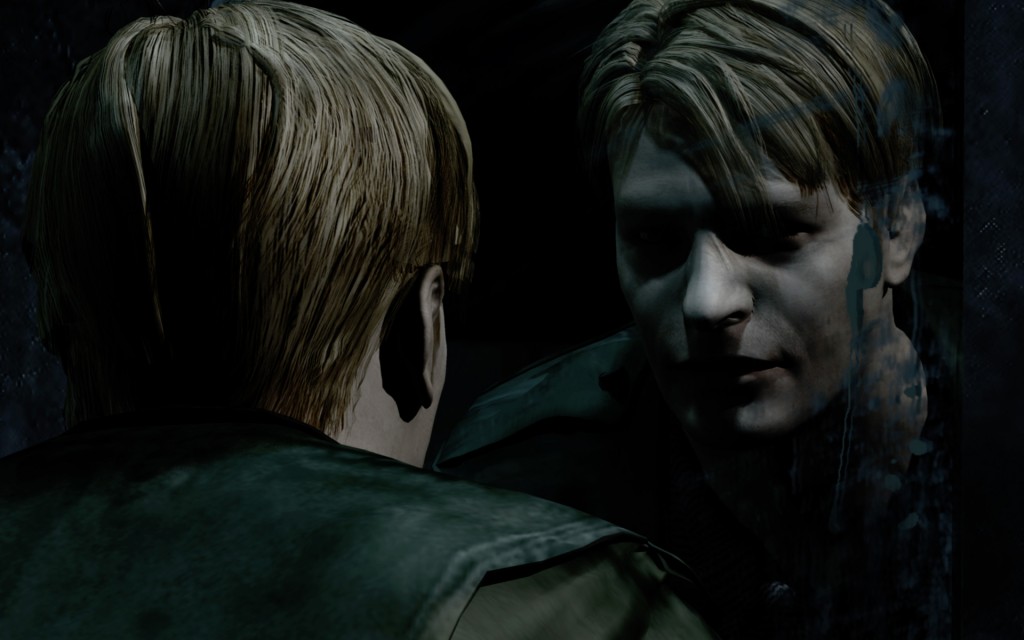Like any great film, a video game is often only as strong as the sum of its parts. Music can be just as important as gameplay or visuals to making or breaking a game. In his new column Audio Play, Deadshirt Video Games Editor Kyle Herr showcases some of his favorite composers from the past and present.

I’m a big fan of video game soundtracks, which I’m sure is starting to show by now, but I’m also a huge fan of horror games. Really, the whole genre of horror is a passion of mine. There’s nothing like coming face to face with the creeping sensation of dread and the fear of the unknown, but handled in a contained, safe environment. One series in particular, Silent Hill, has long satisfied both of these loves in one psychologically frightening package. So it only makes sense that I take the opportunity in this most spooky of months to unveil the Audio Play: Silent Hilloween Special. Over the course of four weekly installments I will take you on a trip through my favorite cursed mountain town on a musical journey into the mind of longtime series composer Akira Yamaoka. Now turn down the lights, plug in you headphones, and relax… for now.
Silent Hill 2
Like I mentioned in the last Audio Play, each Silent Hill game has a unique theme that plays during the intro movie, and they are usually very different from the tracks that you’ll be hearing throughout most of the game. Silent Hill 2’s “Theme of Laura” is arguably the most well known of the intro songs, according to my flawless anecdotal evidence of it being performed at a handful of Silent Hill and Video Games Live concerts. While similar to the original theme in tone, this song also bridges the gap to the later installments which had much more melodic rock songs, many of which involved vocals.
Last week I mentioned that Silent Hill is as reliant on tragedy as it is on horror, and I can argue that the second game in particular is actually much more dependent on tragedy than any other. Without too many spoilers, the premise of this installment involves a man named James receiving a letter from his wife Mary, three years after her death. She asks him to meet her in the resort town of Silent Hill at their “special place.” While he is obviously doubtful of the letter, he is also a man at the end of his rope and is willing to believe anything if it means seeing Mary one more time. Here’s the opening scene, which includes the song “Promise,” one of my favorite pieces from the soundtrack.
https://www.youtube.com/watch?v=h_eiBl7dmKg
Rooted in the idea of a loved one speaking from beyond the grave (as well as a woman looking for her mother, a man with violent revenge fantasies, a lost girl, and a woman with amnesia), Silent Hill 2 focuses more on character drama and psychological dread than any other game in the series. This alone is what elevates it to the top of the pile in many fans’ opinions, including my own. To emphasize this, many of the background tracks in this game are calm, ambient pieces rather than the harsh, grinding sounds of the original. Take for example “White Noiz,” which I could easily see as the musical depiction of fog.
Another prominent feature of this soundtrack is the use of more conventional drum loops and reverb-laden guitar rather than the electronic noise and distorted industrial sounds featured heavily in the first Silent Hill. While there were moments in the original (namely during the opening and end credits) where Yamaoka’s rock sensibilities bled through, this game is thoroughly saturated in them. Check out “Love Psalm,” which is heavily borrows from another song with a similar name. I’ll let you guess which.
Not only does Yamaoka dip into his rock leanings in this title, but occasionally something more esoteric. In the next song on our list, “The Reverse Will,” Yamaoka infuses samples and record scratches to create an ambient hip-hop-inspired soundscape of sorts. Yeah, I know that’s kind of a mouthful, but just give it a listen if you’re starting to worry that this soundtrack is running out of tricks.
I also mentioned last week that the music in the Silent Hill games is inspired by scores from David Lynch’s films, but there are definitely some other directors that I’m betting influenced Yamaoka. “True” is a song that features a simple, minor piano melody at its core. While it may not stay this sparse for the entire piece, this melody is very reminiscent of one that you would hear in a John Carpenter film. At risk of sounding cliche, I’m specifically referencing the score from Halloween. Sure, that soundtrack may have fewer layers and less use of harmony than this track, but the spine of this song definitely feels Carpenter-inspired.
A final, much more light-hearted aspect of these games that I have to mention, despite the heavy spoilers that come with it, are the joke endings. First appearing in the original and then in most of the later games, is the UFO ending. This is a joke ending that involves the protagonist meeting or getting abducted by aliens, and sometimes meeting the previous protagonists while doing so. In Silent Hill 2, there is also a second joke ending. I’ll leave you with this, without any context (not that there is any). See you next week and enjoy!
Next week: Silent Hilloween continues with Silent Hill 3!

